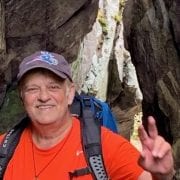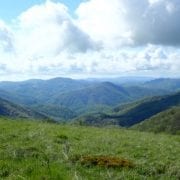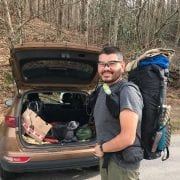“Truly I tell you, just as you did it to one of the least of these who are members of my family, you did it to me.”
– Matthew [25:40] (NRSV)
HOW DO WE TREAT THE LEAST OF THESE?
When my sister was in her early teens and then living with my parents in a distant and poor part of the world, discovered a stray cat. She patted the reluctant cat and earned its trust. Then brought the cat home and pleaded with my parents to keep the cat. My parents, always kind and accepting, welcomed the cat and named it Casey. My sister at this early age showed unique compassion for the disadvantaged, which carried into her adult life. Today, as a professionally trained social worker helps children in distress. The cat that my sister brought home was no ordinary cat. After years of abuse and having to fend for itself in the streets, it was ornery! If you sat on the couch Casey was sleeping under, Casey would reach out and scratch your leg. We would howl and complain. My sister would kindly remind us that she has had a tough life and to forgive her. A reminder of our Christian attitude.
Over time, Casey became a legend in our house. She was known as the unsociable cat. People would come to visit and we had to caution them where to sit. Generally, Casey kept to herself unless her space was invaded. In spite of her unsavory behavior, she always found food placed for her in the morning, she had the freedom to roam the yard and a warm place to sleep every night. She also had a protector, my sister. Casey lived for another ten years, but during this time became part of the fabric of a family, whose lore is still discussed today.
“Jesus makes no distinction about a person based on race, gender, socioeconomic circumstance or locale. All are members of his family without bias in any direction.”
In today’s verse, Jesus reminds us that “all” are part of God’s family. Even the “least of these.” Jesus makes no distinction about a person based on race, gender, socioeconomic circumstance or locale. All are members of his family without bias in any direction. Jesus cares about the person and their hearts. Jesus knows our life circumstances and chooses to help us in spite of our pasts. Jesus knows our hidden terrors and past disappointments. Jesus knows our blind spots and continues to accept us. Jesus is very protective of his flock and cautions us to treat everyone, as he does, equally. He asks us to treat people, as he does, with an awareness of people’s life circumstances.
“Jesus wants us to treat people as if we are talking to Jesus, himself.”
Many times we meet people who are troubled and we turn away. Or we hear about a person from another walk of life and make our judgments without knowing the person. We see people who don’t wear the best clothes, have the latest technology or speak differently, and we judge. We see a homeless person late at night and assume danger. Hidden beneath these non-conforming images are people of Jesus’s family. Jesus wants us to treat people as if we are talking to Jesus, himself. We can do this by ridding ourselves of what we want to see and move to what is there.
Blessings, until next time,
Bruce L. Hartman









